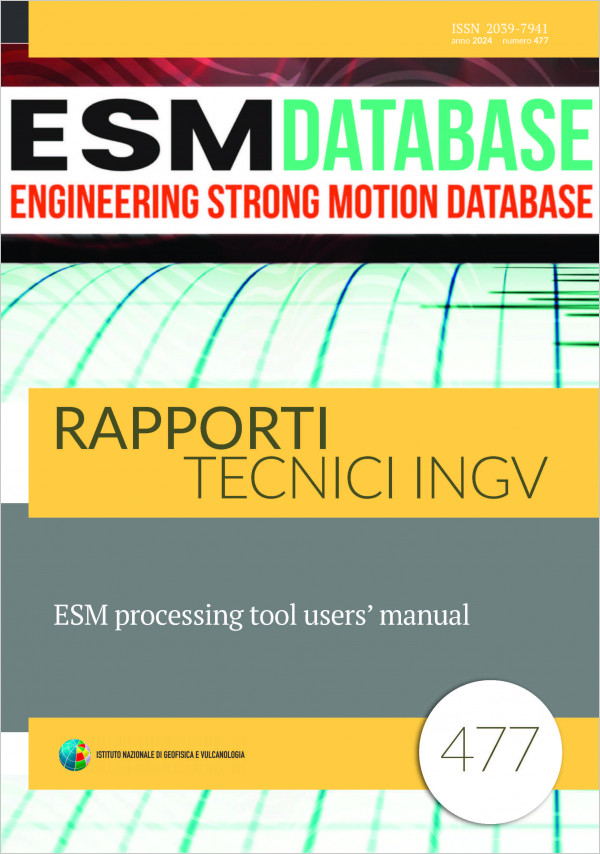The behaviour of the ground surface and of structures subjected to earthquakes can be estimated analysing the accelerograms of seismic records. The ground motion is strongly dependent on several factors and the ability to record, characterize and extract the main features of waveforms is essential to better understand these dependencies. One of the most difficult steps of this analysis is the waveforms’ processing. Its purpose is the estimation and the removal of noise in the records, to evaluate reliable ground motion.
In this framework a processing tool fully integrated within the Engineering Strong Motion (ESM) database was designed [Paolucci et al., 2011; Luzi et al., 2016].
In the last decade the number of waveforms is sharply increased and so is the time it takes to process them. To solve this issue a possible solution is to broaden the number of qualified people involved in the processing. The main aim of this tutorial is to teach the largest number of people how to use the ESM processing tool and to provide some important guidelines for the thresholds of the parameters to set. In the text a stepbystep processing routine is depicted with a description of the purpose for each parameter. In addition, a suite of explanatory examples with peculiar situations is given.
Published: 2024-01-19

